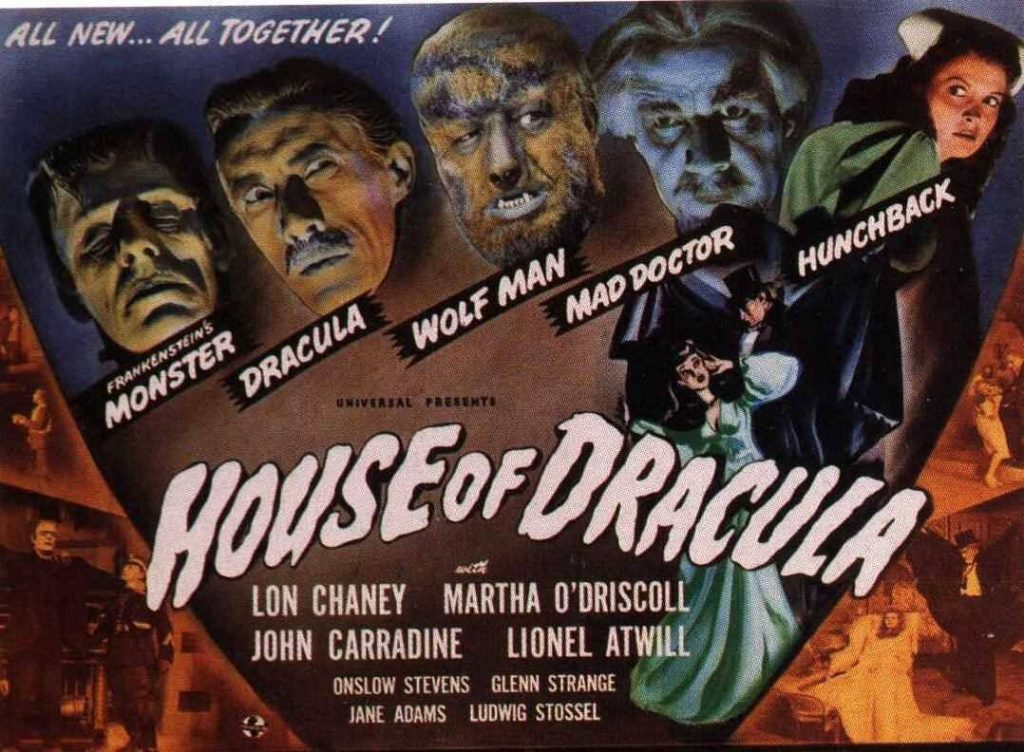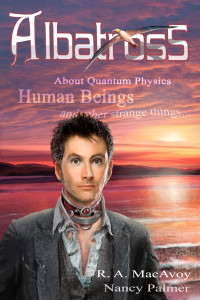(1) DAMN THE SPOILERS, FULL SPEED AHEAD. Scott Timberg writes for Salon on “The art of ‘Archer’: ‘The arc of the character of Archer is really interesting’”. I’m told there are spoilers – but I rarely watch Archer so I read the profile anyway….
Oh, yeah, Archer’s favorite movie is what again?
He loves “Gator” and also “Smokey and the Bandit.” And there are references to “Deliverance” and “Hooper,” all of them.
I took this show originally as a kind of guilty pleasure for other retro straight guys who like single-malt scotch and ’50s Playboy and “Man Men.” But I’ve found gay men and left-leaning feminist women who love “Archer,” too.
It makes me wonder: Is this a show that heroizes Sterling Archer as the coolest cat ever or is it somehow a critique of toxic masculinity? Is he a sleek, Bond-like hero or a cross between a frat boy, a hedge fund asshole and a lacrosse bro?
I think it’s all of that. But I also think it’s up to each individual viewer; I would never tell anybody what to think about it. What I personally love about it is that it shows all sides of Archer, this character. On one hand, he definitely fits the image of the lacrosse bro. And then he has a moment where he says, “Pam, I think you’re my best friend.” There’s a real heart to this person.
He’s not a flat character at all. He definitely has blind spots, you know? And he definitely pretends to have blind spots. There’s a description of him as “willfully obtuse,” which I think is quite apt.
(2) PARALLAX VIEWS OF THE NEWS. “Cassini sends back intriguing pictures of Saturn from new ring-grazing orbit” says the Los Angeles Times.
Cassini’s cameras captured the latest images of the giant hexagon on Dec. 2 and 3, a few days after the spacecraft first began its new orbit on Nov. 30. Each side of that six-sided figure is about as wide as Earth. At the center, a giant storm swirls on the north pole. It’s a surprising structure, surrounded by Saturn’s smoother rings, and scientists have long wondered how it maintains its shape. (Saturn’s larger cousin, Jupiter, has no such shape at its northern pole.)
“Forget the Great Red Spot – Saturn has a hexagonal storm” reports the BBC. (Both articles have the same newly-released photos.)
The destructive ending being planned for Cassini is a result of the spacecraft having nearly exhausted its fuel.
But Nasa is also concerned about the small, yet important possibility that the probe will crash into one of Saturn’s moons at some point in the future.
Given that some of these bodies, such as Enceladus, are potential targets in the search for extra-terrestrial life, it has the potential to contaminate these bodies with terrestrial microbes borne on Cassini.
Starting from April, Cassini will begin its grand finale, in which it will make the first of 22 dives through the 2,400km gap between the planet and its innermost ring.
The spacecraft will make its final plunge into the atmosphere of Saturn on 15 September.
(3) FUND APPEAL. Katherine Kerr needs to rebuild her career so she can afford her husband’s care. More details on her Patreon site.
Yes, my author photo there looks a little grim. Here’s why. Six years ago, my much-loved husband developed early-onset Alzheimer’s dementia. As you can probably guess, this turned our lives upside-down. My writing career first faltered, then ground to a halt while I desperately tried to take care of him myself. Didn’t work — we now have a full-time live-in caregiver while I try to get my writing back on track. Our primary caregiver, VJ, is wonderful but he isn’t cheap, just worth every penny….
What I want to do is get my writing career back on track. I have a contract for a new book in the Deverry universe. I also want to write more short fiction. In the meantime, however, those bills make it hard to concentrate. I spend about $300 a week on food, basics, and utilities, plus even more on medical expenses. My current income falls short. Any help I can get is very very welcome. And thank you all very much.
(4) HINES BENEFIT AUCTION #11. The eleventh of Jim C. Hines’ 24 Transgender Michigan Fundraiser auctions is for a flash fiction story from Stephanie Burgis, written specifically for the auction winner.
Today’s auction is for a brand new flash-fiction story written for you. That’s right, author Stephanie Burgis will write a story for the winner of the auction about any of the characters from her published novels – the winner gets to choose! You’ll let her know which character should be the protagonist, and Burgis will write it within a month of getting the commission. You can find all of her published works on her website.
Burgis reserves the right to share it with other readers later, but it will belong to the winner alone for the first month after she sends it to you.
(5) SWEDISH SF ARTIST LAUNCHES KICKSTARTER. There’s a new Kickstarter campaign for an RPG based on Simon Stålenhag’s art, “Tales from the Loop: Roleplaying in the 80s that never was”.
In 1954, the Swedish government ordered the construction of the world’s largest particle accelerator. The facility was complete in 1969, located deep below the pastoral countryside of Mälaröarna. The local population called this marvel of technology The Loop.
Acclaimed scifi artist Simon Stålenhag’s paintings of Swedish 1980s suburbia, populated by fantastic machines and strange beasts, have spread like wildfire on the Internet. Stålenhag’s portrayal of a childhood against a backdrop of old Volvo cars and coveralls, combined with strange and mystical machines, creates a unique atmosphere that is both instantly recognizable and utterly alien.
Now, for the first time, YOU will get the chance to step into the amazing world of the Loop. With your help, we will be able to create a beautiful printed RPG book about the Tales from the Loop.
This game is our third international RPG, after the critically acclaimed Mutant: Year Zero and Coriolis – The Third Horizon. The lead writer is the seasoned Swedish game writer Nils Hintze, backed up by the entire Free League team who handle project management, editing, and graphic design.
(6) REPURPOSED HISTORY. The election of Donald Trump has made some people revise the history of the Puppy Wars of 2015 – can no one accurately remember what happened only last year? – to furnish a heroic example for the current resistance narrative. See — “Patrick S. Tomlinson Wants YOU To Fight The Power”.
Eventually, the intractable nature of the invaders became clear and a new strategy of opposition and containment emerged. To countermand the exploitation of the nomination rules slate voting represented, the equally devious, yet totally legitimate under the same rules, voting for “No Award” became the marching orders for the faithful.
And it worked. With a clear plan in place, our superior numbers and organizational skills kicked in and slapped the puppies’ poisoned pills out of five categories, doubling the number of times No Award had been given in the Hugo’s entire seventy-three-year history up to that point. I was sitting in the audience for the ceremony. It was electric.
And despite their whining in the aftermath about “burning down our own awards” the attack had been largely turned back. The very next year, puppy influence over the nominations had already begun to ebb, with fewer categories subject to full slating takeovers and fewer No Awards handed out as a result. More women and POC won major awards. And by next year, changes to the rules will see the threat recede even further in the future.
That is how in two short years we beat back the puppies, and that is the model we have to use now that the same sickness has metastasized onto our society, indeed all of Western Civilization. It’s easy to forget now, but the facts are the forces of fascism and intolerance are exactly like the hordes of GamerGate and the Puppies. They are loud, angry, aggressive, shameless, and without scruples.
But they are also a clear minority. As of this writing, more than two point three million more Americans had voted for Hillary Clinton over Donald Trump. More Americans voted for Democratic Senators. More Americans voted for Democratic Representatives in the House. It is only through exploitation of the rules in violation of the spirit of American democratic ideals that the forces of intolerance and bigotry maintain their majorities. This has been true for more than a decade. This makes them vulnerable to our superior numbers should we have the foresight and resolve to set aside our petty bickering and unify in an organized fashion and agree to a coherent plan of counterattack.
(7) POLISH FANZINE. For Eurocon this year the publishers of the Polish fanzine Smokopolitan produced an English-language edition, which includes two articles about fandom. You can download a .mobi or .pdf version here.
We proudly present our special English issue, created for Eurocon 2016 in Barcelona. Inside you will find short stories by, among others, Pawe? Majka, Andrzej Pilipiuk and Micha? Cholewa, as well as essays about many branches of speculative fiction in Poland
(8) GLENN IN HOSPITAL. Former astronaut and U.S. senator John Glenn reportedly has been hospitalized for the past week.
Hank Wilson with Ohio State University’s John Glenn College of Public Affairs said Wednesday that the 95-year-old Glenn is at the James Cancer Hospital, but that doesn’t necessarily mean he has cancer.
Wilson said he didn’t have other information about Glenn’s condition, illness or prognosis.
Glenn apologized for his poor eyesight this year at the renaming of Columbus’ airport after him. He said then he’d lost some of his eyesight because of macular degeneration and a small stroke. Glenn had a heart valve replacement in 2014.
(9) TODAY IN HISTORY
- December 7, 1925 – Future five-time Olympic gold medalist and movie Tarzan Johnny Weissmuller set a world record in 150-yard free-style swimming.
- December 7, 1945 – House of Dracula shown for the first time. The film features four different actors in the role of Frankenstein’s Monster: Glenn Strange, Boris Karloff (via footage from The Bride of Frankenstein), Lon Chaney Jr. and his stunt double, Eddie Parker (via footage from The Ghost of Frankenstein).
(10) TODAY’S BIRTHDAY GIRL
- Born December 7, 1915 — Leigh Brackett, a famed sf/f creator in her own right, as well as mentor and sometime collaborator/co-author for Ray Bradbury.
(11) ANOTHER BEST OF THE YEAR LIST. The list of 44 books in “NPR’s Best SFF of 2016” has “Something to outrage (or at least annoy) almost everyone, I expect….,” promises Chip Hitchcock.
(12) AMAZING STORIES, THE MAGAZINE. Today Amazing Stories highlights “’The Great Milo’ by David Gerrold”, one of the stories by established pros included in its issue along with winning stories from its Gernsback Writing Contest. The tag from Gerrold’s story is —
Never piss off a man who buys ink by the barrel.
(13) COMING TO A TBR PILE NEAR YOU. Nancy Palmer and Bertie MacAvoy agree – they loved Craig Russell’s Fragment.
Nancy Palmer reviewed it at her website.
…I ended up reading the whole thing, compulsively. It’s a slender volume. The story, however, is a big one.
Sometimes what’s scary about a thriller is its plausibility. One of the things speculative fiction writers do best is tell the truth sideways. And there’s a lot of truth here. Craig Russell’s near future ecological and political world are a little too easy to imagine as reality. It was a compelling, but uncomfortable read: I found myself reading faster as the story progressed, hoping there might be some way to avert disaster. Maybe something in the way of hope, that might be carried past the pages of the book and into the outer world. The hubris and political manipulation in Fragment: yes, there are real-world analogs. Seeing the potential outcome as spelled out in this novel? Dread inducing. But I couldn’t look away.
And Bertie MacAvoy praises it, too:
I just loved Craig Russell’s first novel, Black Bottle Man, and told him so, although I didn’t know the man at all. It was an old-fashioned sort of novel, very much in control, and I found it fantastically well written. May others have agreed, if you look at the number of awards it received for a debut novelist. I awaited his second novel eagerly.
Not only is it just as good, or better, but it is wildly unconventional, even for these most unconventional S.F. days, and it caught me so firmly I wasn’t even aware of the tricks he was playing on the reader until the book was 65% read. I love being tricked, when it is done well. (Done poorly, however, of course, I just feel let down.)
It strides the border between intricate Science Fiction and an almost Kafka-esque style. And doesn’t break the rules of either. That is the ultimate trick.
So I advise all and sundry to read ‘fragment’. You will be the better for it. And, it’s quite a thrill-ride.
(14) CLIPPING SERVICE. “How The Internet Unleashed a Burst of Cartooning Creativity” is a piece on Medium.com that was originally published in The Economist in 2012 (so it’s not behind the Economist paywall). Randall Munroe is prominently featured, but Kate Beaton and Zach Weiner are also interviewed. Also of interest is the section on Arab cartoonists who would be censored if they were restricted to newspapers but are freer to express themselves on the Net.
Triumph of the nerds
The decline of newspapers and the rise of the internet have broken that system. Newspapers no longer have the money to pay big bucks to cartoonists, and the web means anybody can get published. Cartoonists who want to make their name no longer send sketches to syndicates or approach newspapers: they simply set up websites and spread the word on Twitter and Facebook. Randall Munroe, the creator of “XKCD”, left a job at NASA to write his stick men strip, full of science and technology jokes (see above and below). Kate Beaton, a Canadian artist who draws “Hark, A Vagrant”, sketched her cartoons between shifts while working in a museum. Matthew Inman created his comic “The Oatmeal” by accident while trying to promote a dating website he built to escape his job as a computer coder.
The typical format for a web comic was established a decade or more ago, says Zach Weiner, the writer of “Saturday Morning Breakfast Cereal”, or “SMBC” (below). It has not changed much since. Most cartoonists update on a regular basis?—?daily, or every other day?—?and run in sequence. “I think that’s purely because that’s what the old newspapers used to do,” says Mr Weiner. But whereas many newspaper comics tried to appeal to as many people as possible, often with lame, fairly universal jokes, online cartoonists are free to be experimental, in both content and form.
(15) SFFSFF. The annual Science Fiction + Fantasy Short Film Festival (SFFSFF) at Seattle’s MoPOP has announced its program selections for the January 28, 2017 event. From Seattle Seahawks battling giant monsters through the city’s streets to a mind-altering cell phone app with unintended consequences, this year’s lineup of 23 films is presented in two packages with a 30-minute intermission between sessions and concludes with an awards ceremony. Ticket information and further details at the linked site.
(16) SCOUTING REPORT. This Inverse article – “11 Science Fiction Books That Will Define 2017” includes the official title and cover for book #3 in Jemisin’s Broken Earth Trilogy.
Science fiction books have always looked toward the future through both creative speculation and adventurous escapism. After the 2016 Presidential Election, science fiction authors are poised to be more influential than ever before.
Luckily for readers, sci-fi authors are known to churn out their books like rabbits, creating a never-ending stream of great works. In 2017, we’ll see the continuation of several acclaimed book series, but will also have plenty of impressive standalone science fiction, too. Below is a list of eleven books that are slated for release in 2017 that will define science fiction in the upcoming year. Keep in mind these dates can be finicky, and that they can change at warp speed. But, otherwise, happy reading to your future self!
[Thanks to Martin Morse Wooster, James Davis Nicoll, John King Tarpinian, Dawn “No Middle Name” Incognito, J(“No Middle Initial”)J, Hampus Eckerman, and Chip Hitchcock for some of these stories. Title credit goes to File 770 contributing editor of the day Anthony.]




